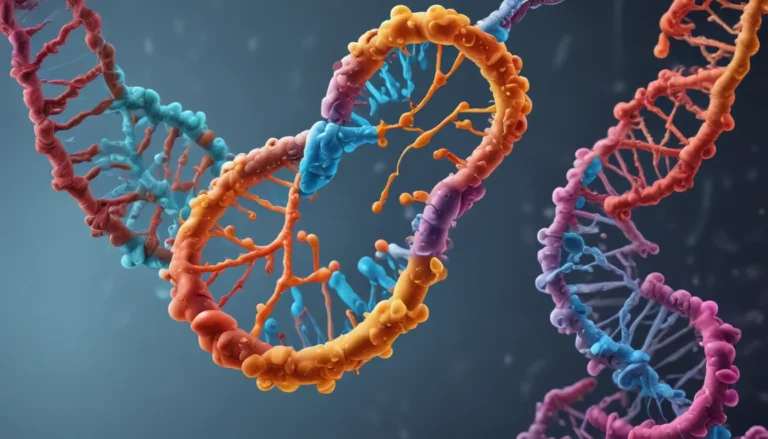A Note About Images: The images used in our articles are for illustration purposes only and may not exactly match the content. They are meant to engage readers, but the text should be relied upon for accurate information.
Malnutrition, a global scourge that plagues millions, particularly in developing nations, is a complex issue with profound implications. It stems from inadequate nutrition and essential nutrient deficiencies, leading to dire health consequences. To effectively combat this widespread challenge, it is imperative to delve into the realm of malnutrition and unearth enlightening facts that illuminate its impact and significance.
Unveiling Key Takeaways:
- Malnutrition affects millions, causing stunted growth, health ailments, and even fatalities, emphasizing the importance of nutrient-rich diets.
- This multifaceted problem is intertwined with poverty, climate change, and bears substantial social and economic burdens, necessitating collaborative efforts across various sectors to find solutions.
The Global Challenge of Malnutrition:
Malnutrition stands as a critical global health crisis, impacting millions worldwide. Shockingly, nearly 45% of deaths among children under five are attributed to malnutrition. Moreover, its repercussions extend to stunted growth, impaired cognitive development, and heightened vulnerability to diseases.
Deciphering Malnutrition vs. Undernutrition:
While often synonymous with undernutrition, malnutrition encompasses both undernutrition and overnutrition. Undernutrition arises from inadequate essential nutrient intake, while overnutrition results from excessive consumption of unhealthy foods, leading to obesity and related chronic illnesses.
Nurturing Maternal Health Amidst Malnutrition:
Malnutrition not only jeopardizes children but also exerts a profound toll on maternal well-being. Expectant mothers grappling with malnutrition face elevated risks of pregnancy and childbirth complications, culminating in underweight newborns and perpetuating the cycle of malnutrition.
Unmasking Hidden Hunger: Micronutrient Deficiencies:
Beyond calorie insufficiency, malnutrition entails inadequate essential vitamin and mineral intake, a plight known as hidden hunger. This deficiency can trigger severe health issues; for instance, vitamin A scarcity can impair vision, while iron insufficiency can lead to anemia.
Uniting Malnutrition with Poverty:
Malnutrition and poverty intertwine intricately, as poverty limits access to nutritious food and healthcare, rendering individuals more vulnerable to malnutrition. Conversely, malnutrition perpetuates poverty by impeding physical and cognitive development, hampering productivity, and escalating healthcare costs.
Climate Change’s Impact on Malnutrition:
The menace of climate change exacerbates malnutrition as extreme weather events like droughts and floods devastate crops, disrupting food production. Rising temperatures also compromise the nutritional content of certain crops, exacerbating food insecurity and contributing to malnutrition.
The Toll of Malnutrition: Social and Economic Impacts:
Malnutrition exacts a substantial toll on individuals, communities, and nations, manifesting in reduced productivity, heightened healthcare expenses, and thwarted economic progress. Addressing malnutrition transcends mere health improvement; it is a pivotal step toward sustainable development.
Championing an Integrated Approach to Combat Malnutrition:
Effectively combating malnutrition necessitates a holistic, multisectoral approach, enlisting interventions from healthcare, agriculture, education, and social welfare realms. By synergizing efforts and adopting a consolidated strategy, significant strides can be made in alleviating malnutrition and fortifying global health.
In Closing:
Malnutrition stands as a formidable global adversary, especially prevalent in developing nations, undermining immunity and impeding holistic development. Understanding the roots and ramifications of malnutrition is paramount in formulating efficacious strategies to combat it. By fostering awareness, advocating education, and ensuring access to wholesome food and healthcare, we can effect substantial change in the battle against malnutrition. Remember, even small gestures can yield profound impacts. Let’s unite in ensuring a world where everyone can embrace a healthy, fulfilling life.
FAQs: Your Queries Answered
-
What does malnutrition entail?
Malnutrition ensues when the body lacks requisite nutrients for optimal function. It can stem from inadequate food consumption, poor nutrient absorption, or imbalances in essential nutrients. -
Who bears the brunt of malnutrition?
Malnutrition affects individuals of all ages but is most prevalent among children and expectant mothers in developing nations. Nevertheless, individuals in developed countries, particularly those grappling with poverty or residing in food-deprived areas, can also experience malnutrition. -
How do I recognize malnutrition?
Malnutrition manifests through weight loss, fatigue, weakened immunity, stunted growth in children, delayed wound healing, and cognitive impairments. Symptom severity and variation hinge on the malnutrition type and intensity. -
How can we thwart malnutrition?
Preventing malnutrition demands a multifaceted approach, encompassing education to foster healthy eating habits, ensuring access to diverse, nutritious foods—especially in underserved regions—and tackling poverty while enhancing healthcare infrastructures. -
Can malnutrition be reversed?
With timely intervention and adequate nutrition, malnutrition can often be reversed. Administering balanced diets tailored to individual nutritional needs, coupled with suitable medical interventions if required, can restore health and well-being. -
What are the enduring effects of malnutrition?
Malnutrition, notably impactful on children, can induce stunted growth, impaired cognitive development, and heightened disease susceptibility. Additionally, it can compromise overall quality of life and elevate adult chronic illness risks. -
How can I contribute to battling malnutrition?
Supporting organizations dedicated to nourishing and healing the underprivileged is a significant way to combat malnutrition. Volunteering, raising awareness, and advocating for nutritional-centric policies are additional avenues for making a positive impact. -
Is malnutrition solely a developing world concern?
Contrary to misconceptions, malnutrition transcends borders and pervades developed nations, affecting marginalized populations deprived of nutritious sustenance. Food insecurity and poverty underpin malnutrition in both developing and developed regions.
From stifling growth to hindering societal progress, malnutrition’s ramifications are profound. Beyond the realm of weakened immunity and impaired development lies a chasm of poverty cycles and societal stagnation. To surmount this multifaceted challenge, a comprehensive approach touching upon food security, sanitation, education, and healthcare access is imperative. The looming specter of Shigella, a bacterial menace intertwined with malnutrition, adds urgency to safeguarding vulnerable populations. Illuminating the interconnected web of these challenges is pivotal in sculpting effective interventions and fostering a healthier future for all.
Your Feedback Matters:
Our steadfast commitment to delivering credible, captivating content underscores our core mission. Each user-contributed fact undergoes rigorous editorial scrutiny, ensuring authenticity and reliability. Trust in our unwavering dedication to quality and veracity as we navigate knowledge’s vast expanse together.
With the stage set for a transformative journey, let’s join hands in unraveling the enigma of malnutrition, steering toward healthier horizons for all.






